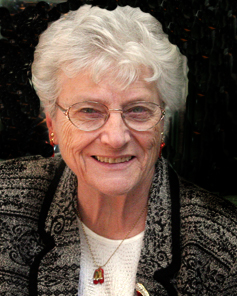
The following article is part of the Diamond Club Member group that began in the January 7, 1943, issue of the Rock County Star Herald. Members of this group consist of persons of age 75 and older.
The following appeared in The Rock County Herald on July 22, 1943.
Whenever you feel you’re working too many hours a day, at too small a salary, think of Mr. and Mrs. William Schuldt, of Hardwick. When they were first married, they had usually worked 40 hours before the week was one third gone, and their only recompense was a bare living.
Both Mr. and Mrs. Schuldt were born in Germany. He was born August 20, 1868, at Mecklenburg, Schwerigen and Mrs. Schuldt on Sept. 24, 1867, at Ludwigschloss. After they were old enough to leave home, both obtained employment at the same farm. Mrs. Schuldt not only did the housework, but also worked out of doors.
Being employed by someone meant working from daylight until dark at a very small salary. Mrs. Schuldt recalls that she has oftentimes loaded three or four loads of hay, not with a fork, but with her bare hands, during the course of a day. She has also bound grain after it had been cut with a scythe, and has hoed potatoes until she was so tired she could hardly move.
After they were married on March 17, 1893, they rented a small acreage, and Mr. Schuldt obtained a job in a dynamite factory at 75 cents a day. One week, he would work during the daytime and the following week he would work at night. He walked to and from the factory, the one-way trip requiring one and one-half hours of fast walking. Those were long days for the young couple, but both survived it well. When he worked nights, Mr. Schuldt recalls he would have to be at work at 6 p.m. That meant that he had to leave home shortly after 4 p.m. to make it on time. He would work until 6 a.m., the following day, then would walk home, arriving there at about 8 a.m. From 8 a.m. until noon, he would take care of his farm work. On many occasions, he related, he would haul in a few grain shocks from the field, and would thresh them with a flail on the floor of his barn until about 12 o’clock, then he would like down to sleep for four hours and then would get up and go back to work at the factory.
Both Mr. and Mrs. Schuldt found it necessary to learn how to work early in life. Mr. Schuldt’s father was a common laborer with only a small income, and the children had to shift for themselves as soon as they were able to do so. Mr. Schuldt herded cattle at the age of eight, and he recalls that often he would arrive at the farmer’s place before he was even out of bed. He’d be out with the cattle all day, and would return home late in the evening. For this work, he would get his clothing and his board. When he became older, and could do more work, he received $14 as his salary for the entire year.
He attended school from the age of 6 to 14, and after that period, was assigned to man-sized jobs at boy-size salaries. However, his pay was better than it had been, for he remembers he received about $53 a year, but out of this he had to buy his own clothing.
Mrs. Schuldt, who before her marriage was Dorothea Wiese, was left without parents at the age of 15. Her father died when she was only seven, and her mother was working in the fields. She’d return from school at noon and would bring lunch to her mother in the field. Returning home, Mrs. Schuldt would take care of the chores, which consisted of feeding the pigs and other hard work, then she, too, would go to the field and help her mother during the afternoon.
She was 15 years old when her mother died and after that was left to shift for herself. It was then that she obtained work at the farm where she met her husband, and there she received an annual salary of $32.
When Mrs. Schuldt was employed at the factory, Mrs. Schuldt spent her time rearing her children, and doing the farm work on their little farm. “Many were times that I put my babies in the wheelbarrow and took them out to the field while I would spade and hoe the ground,” she said. “While I was working, they’d be playing around on the ground.”
“Oh, yes, we found some time to have a little fun once in a while,” Mr. Schuldt said. Sometimes we would go to the music concerts in town. After the orchestra had finished its part of the program and the singers had sung their last song, a little orchestra would be formed by some of the musicians, and there’d be dancing the remainder of the evening.”
Donations to the Rock County Historical Society can be sent to the Rock County Historical Society, 312 E. Main Street, Luverne, MN 56156.
Mann welcomes correspondence sent to mannmade@iw.net.



